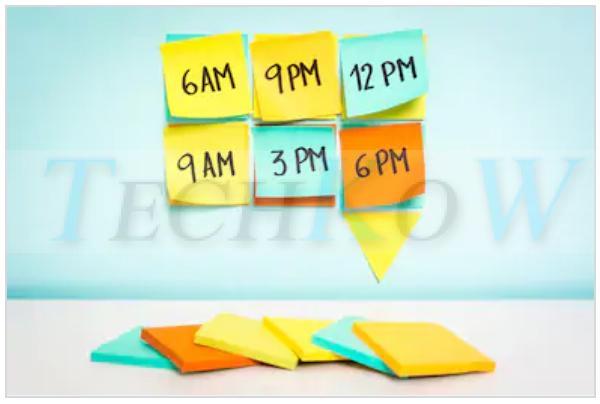Ever finished your workday with a feeling you weren’t able to accomplish your goals? Well, it happens to most of us due to decreased productivity.
It’s normal. Being productive can be more complicated than it seems. Most people fail to accomplish their goals due to poor time management. Projects keep on falling farther behind despite increasing your speed and concentration.
If you fall in this bracket, don’t worry as there are simple ways you can be productive at work.

• Track and limit time spent on a task
One may think they are good at gauging how much time they spend on various tasks. This is just an assumption as we tend to be behind the clock most of the time. However, some research suggests only 30% of the total working population is able to track and limit time spent executing a task accurately.
Tools like Rescue Time or Time Tracker can help you know to determine how much time you spend on different tasks while at work. These tools will offer you a breakdown of how much time you spend on social media, word processing, email, and other apps. Based on the report, one can effectively reschedule their time to increase output.
• Take regular breaks
This option sounds a bit absurd, but taking scheduled breaks can improve your concentration. Here one should make sure they take scheduled breaks to avoid taking extended breaks causing loss of concentration. Short breaks help maintain consistent performance when working on long tasks. Working on a job without taking a break causes a relentless decline in performance.
• Set self-imposed deadlines
Stress is continuously perceived as negative energy or a bad thing. However, a manageable level of self-imposed pressure can, at times, be helpful by giving you focus and helping you meet goals. If you have to work on an open-ended task, set a deadline and make sure you adhere to it no matter what. Setting self-imposed deadlines will keep you focused and productive as you will always be watching the clock.
• Find a way to manage or avoid meetings
Meetings are the biggest time-sucks in any organization. Despite this being clear, we continue to book them, and later on, complain they are a complete waste of time. The Atlas is an estimate average office workers spend more than 31 hours in unproductive meetings each month. Try to avoid unproductive meetings and manage unavoidable ones. There are plenty of ways to spur creativity in a meeting. Put them to use.
You can start by holding standing meetings. As they sound, these are meetings where everyone stands to decrease territoriality and increase group performance. An organization can also opt for web-based meetings that reduce movement.
• Quit multi-tasking
It’s tempting to take care of a few s at the time, especially if they seem easy to execute. However, it does not work like that. Multi-tasking slows you down as it not humanly possible. It may seem like you are saving time, but in the real sense, you are decreasing your productivity.
Multi-tasking does not increase inefficiency but instead results in time loss and decreased productivity. One should form a habit of committing to a single task at a time before moving on to the next project.
• Get early to work
One is productive when working in an empty and quiet office, as there are a few distractions. This may be impossible to achieve during regular working hours, and that is why we suggest you get early to work.
By getting early to work, one enjoys a few hours of peace and quietness. Distractions from co-workers can decrease your daily productivity by half. The whole essence of this tip is to help eliminate the number of people around you to increase productivity.
Adapting this routine can help you achieve more than you can imagine, and it’s up to you to take the initiative.
• Outline your work priorities
One should make a habit of coming up with a list of things to be done on a particular day. Make sure you arrange the tasks in the order of urgency or how you wish to accomplish them.
You can save time by compiling a to-do list on the previous night. Continue to update the list throughout the day as you complete tasks or when new projects come up. Check items off the list after accomplishing to measure progress. Make sure you execute every task on your list before leaving the office.
• Be proactive, not reactive
If you allow incoming phone calls and emails to dictate how you will schedule your day, there is a high chance you won’t accomplish much. The best alternative is to set aside time to respond to emails and phone calls. Make sure you adhere to your attack plan every day, as being reactive can waste your time.
It’s hard to resist the allure of a voicemail, email, or text notification. To avoid being reactive, turn off notifications during work hours. This is the first step to being proactive.
Where possible, try to minimize interruptions to the best of your ability. Be in control and start setting office hours or working from home when you have deadlines to meet.
Final thought
Increasing productivity requires changing your work routine by adapting productive work habits. No one will push you to it, and you need to take the initiative. No more Excuses! Utilize the mentioned ways above now to increase productivity.





